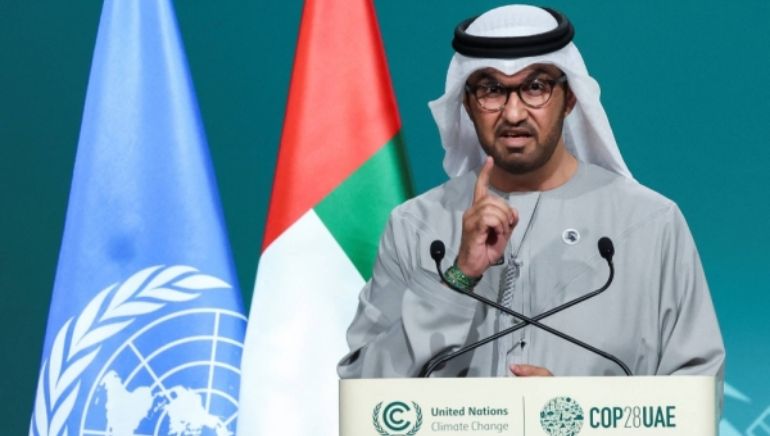At the COP28 climate summit in Dubai, representatives from almost 200 nations committed on Wednesday to initiate a global reduction in fossil fuel consumption, heralding a decisive shift away from the age of oil. After intense negotiations spanning two weeks, the deal sends a resounding message to investors and policymakers, affirming the world’s united front in addressing climate change, considered the last best hope to stave off climate catastrophe.
COP28 President Sultan al-Jaber hailed the agreement as “historic,” emphasizing that its true success would be in its implementation.
“We are what we do, not what we say,” he told the crowded plenary at the summit. “We must take the steps necessary to turn this agreement into tangible actions.”
The breakthrough faced significant resistance from the Saudi Arabia-led OPEC, which opposed explicit language calling for the “phase-out” of oil, gas, and coal. The battle extended negotiations into overtime, raising concerns of a potential impasse.
Norway’s Minister of Foreign Affairs, Espen Barth Eide, lauded the accord, highlighting its clarity on the imperative to transition away from fossil fuels—a sentiment echoed by over 100 countries.
The COP28 agreement, a first in nearly 30 years of climate negotiations, emphasizes global efforts towards “transitioning away from fossil fuels in energy systems” and “phasing out inefficient fossil fuel subsidies.”
Notably, it acknowledges concerns raised by countries like India, South Africa and China, on coal phase-down, maintaining the language from the 2021 conference in Glasgow.















